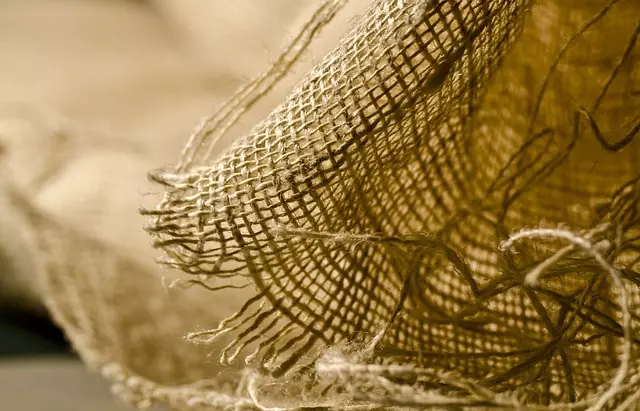This section discusses the benefits of using African roots like Devil's Claw and Boswellia for alleviating muscle soreness post-exercise. Both plants contain potent anti-inflammatory compounds such as harpagoside and hypaphorine from Devil's Claw, and boswellic acids from Boswellia, which can help ease discomfort. These natural remedies are scientifically supported for their role in post-exercise recovery and muscle health, particularly beneficial for athletes and fitness enthusiasts who experience muscle soreness. Additionally, African roots like Willow Bark offer anti-inflammatory and analgesic effects similar to NSAIDs but with fewer side effects, available in various forms such as teas, tinctures, or capsules. For safe and effective integration into a workout routine, it's advisable to consult a healthcare provider on proper dosage and timing. Moreover, incorporating African roots like Bitter Melon (Okra/Karonga) and African yam into your diet can enhance muscle repair due to their vitamin and mineral content, antioxidant properties, and ability to reduce inflammation. These nutrient-rich options support immune system health and offer a natural way to manage muscle soreness associated with intense physical activity, such as DOMS. Tailoring a diet plan that includes these roots in consultation with a nutritionist can further optimize recovery and overall health for those engaging in regular exercise.
Embark on a journey to alleviate muscle soreness through the restorative powers of African roots. This article unveils the healing potential of these natural remedies, offering tailored workout plans that integrate African root-infused treatments to ease post-exercise discomfort. Discover how athletes and fitness enthusiasts can incorporate these nutrient-rich components into their personalized recovery strategies for optimal relief and enhanced wellness.
- Unraveling the Healing Potential of African Roots in Customized Workout Plans for Muscle Soreness Relief
- Tailoring Your Fitness Routine with African Root-Infused Remedies to Combat Post-Exercise Aches
- Integrating Nutrient-Rich African Roots into a Personalized Recovery Strategy for Athletes and Fitness Enthusiasts
Unraveling the Healing Potential of African Roots in Customized Workout Plans for Muscle Soreness Relief

Embarking on a fitness journey that includes intense workouts can often lead to muscle soreness, a common experience for individuals seeking to enhance their physical capabilities. Incorporating African roots into customized workout plans may offer a natural approach to alleviate this discomfort. Traditional African medicine has long utilized a variety of indigenous plants and herbal remedies with healing properties. One such example is the use of Devil’s Claw, an African root celebrated for its anti-inflammatory and pain-relieving qualities. Its active components, harpagoside and hypaphorine, are believed to contribute significantly to its efficacy in soothing sore muscles. By integrating extracts from Devil’s Claw into a post-workout regimen, individuals may experience accelerated recovery times and reduced muscle soreness.
Furthermore, another African root, Boswellia, also known as Indian frankincense, is renowned for its anti-inflammatory and antioxidant properties. Studies suggest that boswellic acids found within this root can inhibit pro-inflammatory cytokines and enzymes, making it a potent addition to a muscle recovery plan. When tailoring workout routines with the aim of relieving soreness, the strategic use of these African roots can be a cornerstone of natural treatment strategies. Their inclusion in customized fitness programs not only reflects an appreciation for traditional healing practices but also offers a scientifically grounded approach to post-exercise recovery and overall muscle health. These natural remedies, when used as part of a balanced workout plan, can be a valuable tool for athletes and fitness enthusiasts alike looking to minimize the effects of muscle soreness.
Tailoring Your Fitness Routine with African Root-Infused Remedies to Combat Post-Exercise Aches

When addressing muscle soreness post-exercise, incorporating African root-infused remedies into your fitness routine can be a natural and effective approach. Traditional African medicine has long utilized the anti-inflammatory and analgesic properties of certain roots, such as Devil’s Claw and Willow Bark, which are rich in compounds similar to those found in non-steroidal anti-inflammatory drugs (NSAIDs). These remedies can be taken as teas, tinctures, or capsules, providing a holistic solution to ease muscle tension and reduce pain without the side effects often associated with conventional medication. To tailor your workout plan with these ancient wisdom remedies, it’s advisable to consult with a healthcare provider to determine the appropriate dosage and timing for optimal results, ensuring that it complements rather than competes with your exercise regimen. By integrating these African root treatments into your post-workout routine, you can enhance your recovery process and prepare your body for the next exercise session, maintaining consistency and progress in your fitness journey while naturally managing muscle soreness.
Integrating Nutrient-Rich African Roots into a Personalized Recovery Strategy for Athletes and Fitness Enthusiasts

Athletes and fitness enthusiasts often seek effective recovery strategies to alleviate muscle soreness and enhance overall performance. A key component of a robust recovery plan can be the integration of nutrient-dense foods, and African roots stand out for their potential benefits. Traditional African diets are rich in diverse root vegetables, many of which are packed with vitamins, minerals, and antioxidants that support muscle repair and inflammation reduction. For instance, bitter melon, often referred to as ‘Okra’ or ‘Karonga,’ is not only a staple in African cuisine but also contains compounds that may aid in reducing oxidative stress and promoting healthy cellular function. Another example is the African yam, which is a nutrient powerhouse containing vitamin C, potassium, and B vitamins, all of which contribute to muscle recovery and immune system support. By incorporating these African roots into a balanced diet, athletes can enhance their natural ability to recover from intense workouts or competitions, leading to improved performance and reduced soreness over time. Additionally, the anti-inflammatory properties found in these roots can be particularly beneficial for those experiencing delayed onset muscle soreness (DOMS), offering a natural alternative to conventional pain relief methods. To reap these benefits, fitness enthusiasts should consider consulting with a nutritionist who specializes in performance diets to tailor an intake plan that complements their workout regimen and dietary preferences. This personalized approach ensures that the athlete’s nutritional needs are met, optimizing their recovery process and contributing to better overall health.
muscle soreness relief, African root remedies, personalized recovery strategy, fitness routine adaptation, nutrient-rich healing components, workout plan customization.
In conclusion, incorporating African root-based remedies into one’s fitness regimen can offer a natural and effective approach to managing muscle soreness. The adaptability of these ancient healing components allows for a personalized recovery strategy that caters to the unique needs of athletes and fitness enthusiasts alike. By understanding the role these nutrient-rich elements play in promoting muscle health and incorporating them into a tailored workout plan, individuals can enhance their post-exercise recovery and maintain an active lifestyle without undue discomfort. Embracing the healing potential of African roots not only aligns with a holistic approach to fitness but also underscores the importance of traditional remedies in contemporary health practices.






